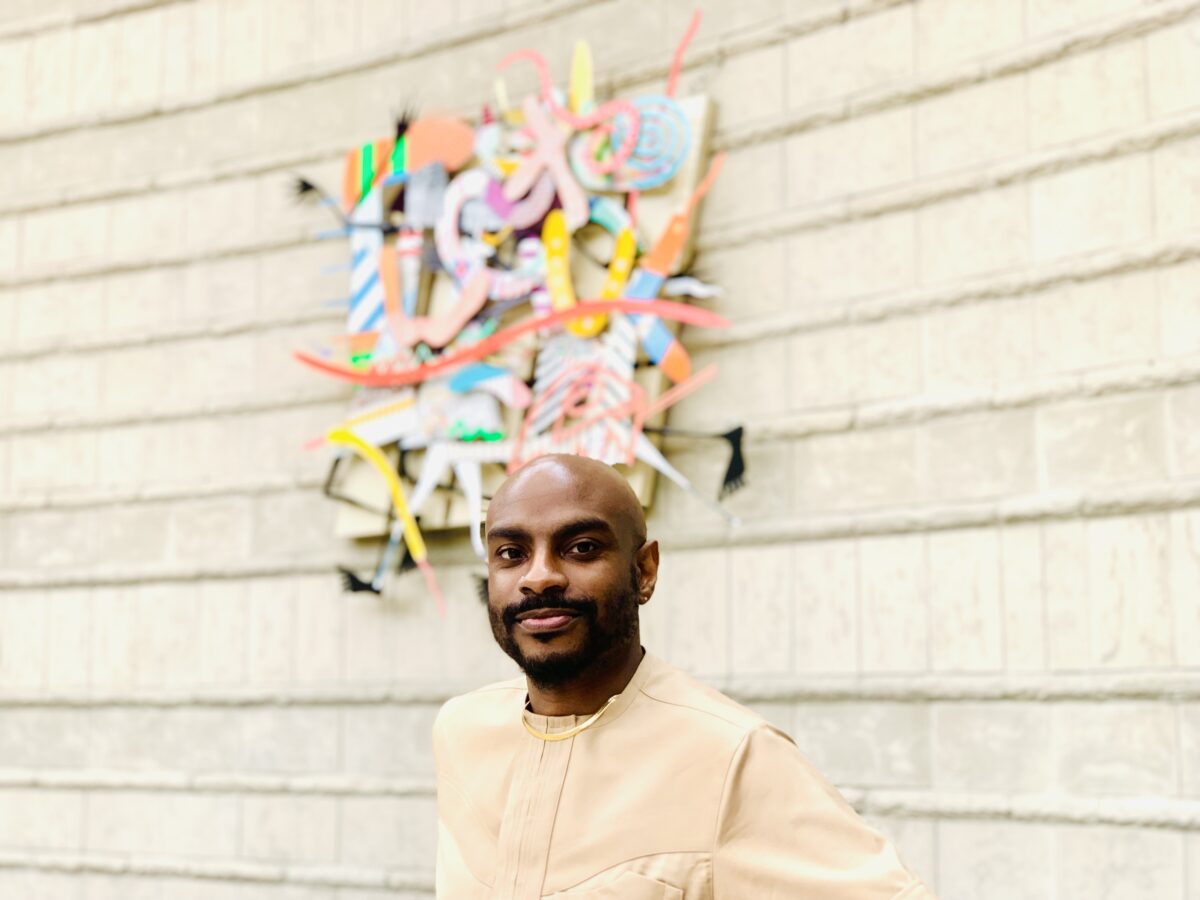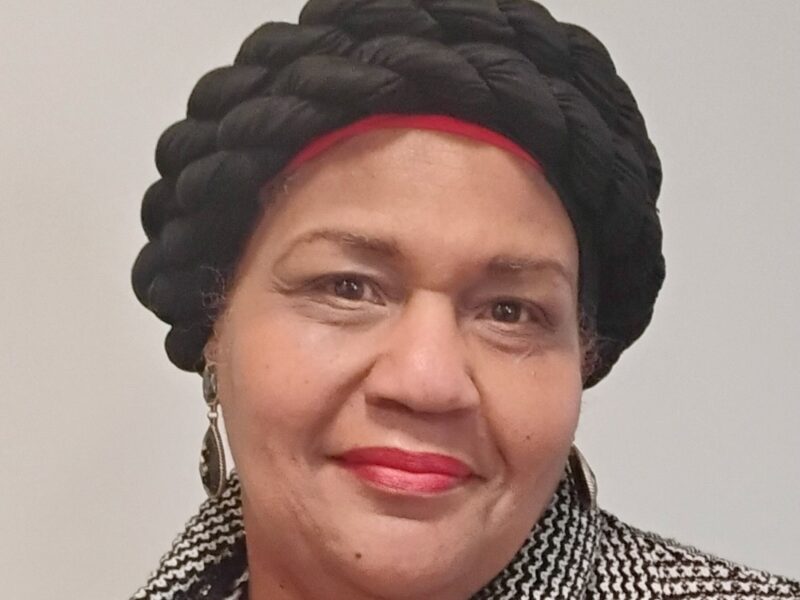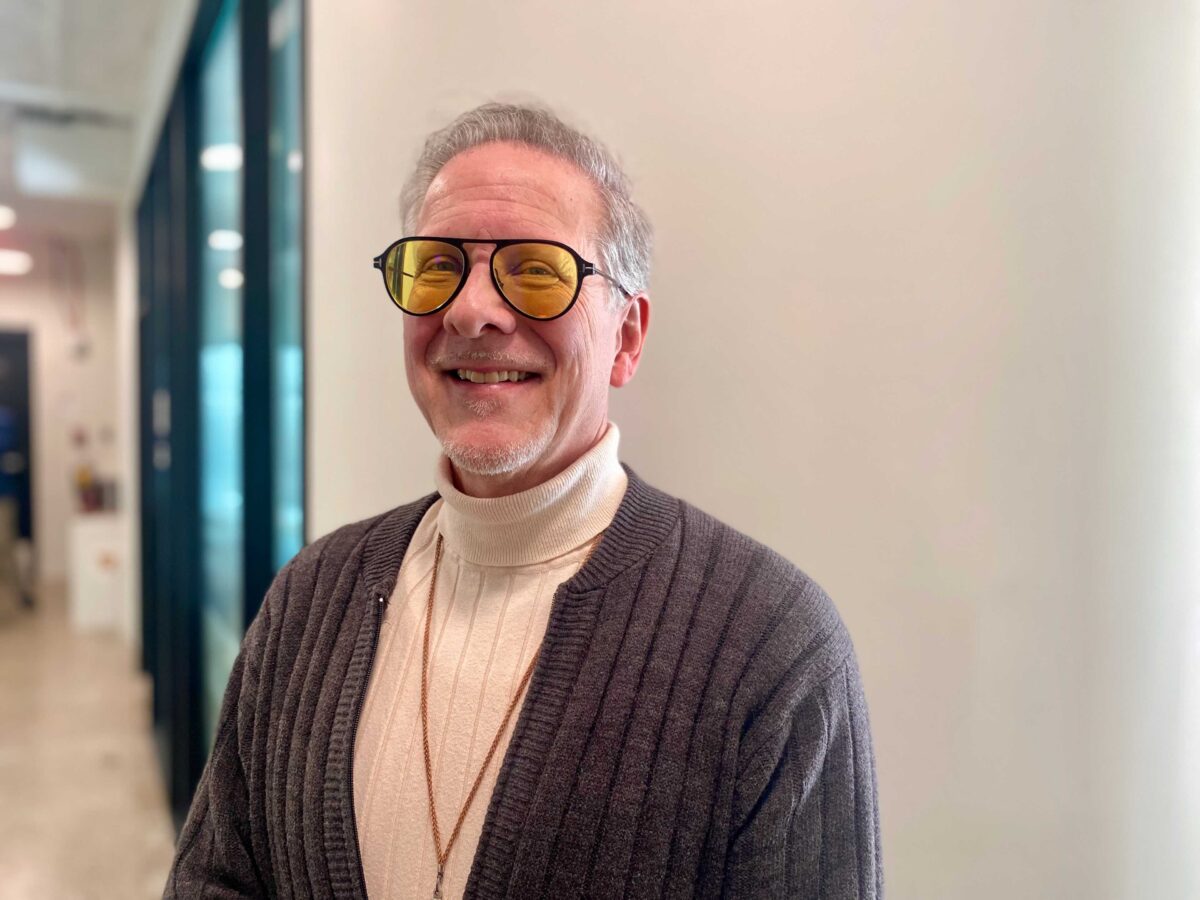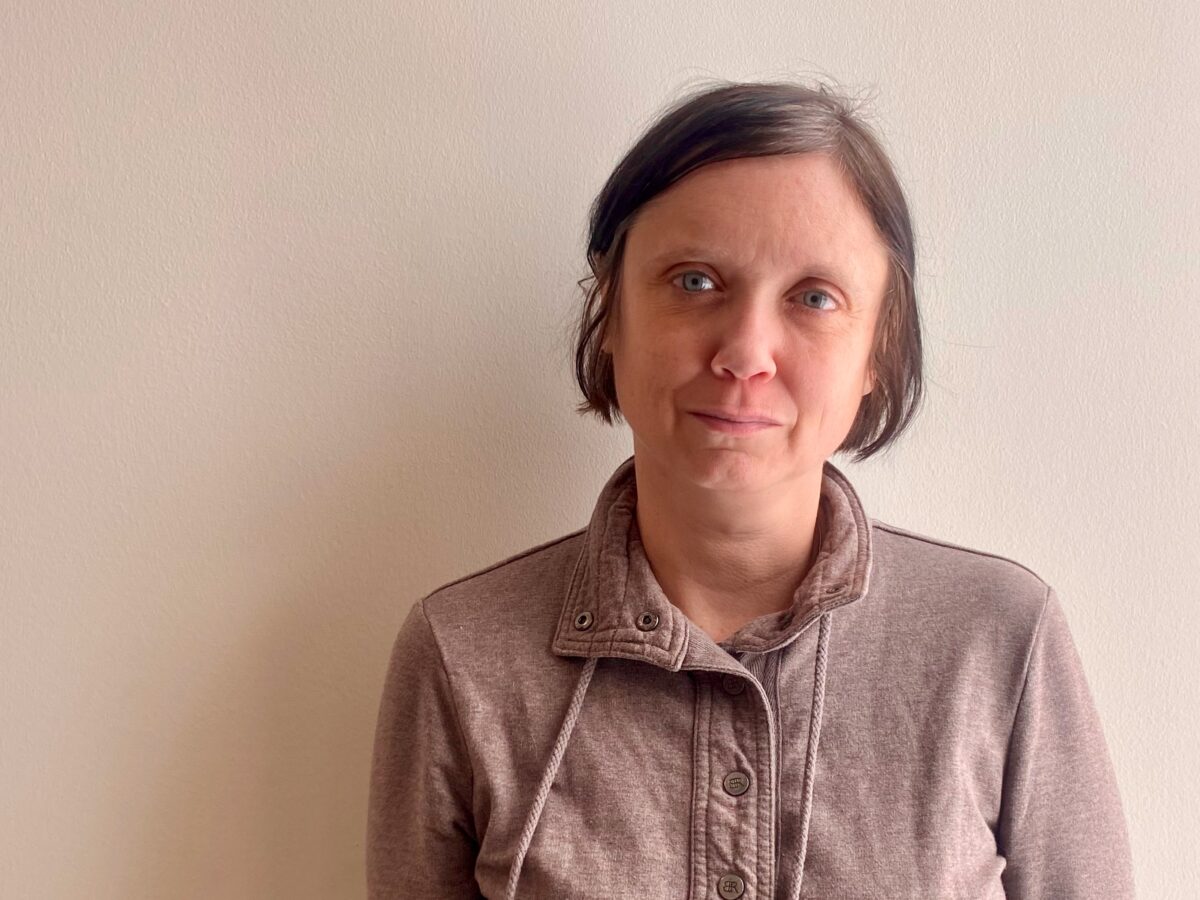Overview:
-Native Detroiter Tommie Obioha is driving change through community advocacy and development.
-He co-founded Detroit Block Works, focusing on social infrastructure to empower local organizations.
-Obioha urges the next generation to understand Detroit's complex and often generalized history.
This story is published as part of Planet Detroit’s 2025 Spring Neighborhood Reporting Lab, supported by The Kresge Foundation, to train community-based writers in profile writing. This year’s participants will focus on highlighting grassroots leaders driving positive change in Metro Detroit.
As a native Detroiter and first-generation Nigerian American, Tommie Obioha’s passion for community development stems from a deep personal connection to the city and to the legacy of his mother, Helen Johnson, who was an active community leader in Detroit.
Obioha says he hopes to continue his work through storytelling, using journalism to inform and connect people to their city through Planet Detroit’s Neighborhood Reporting Lab.
When you think about who you are, where does your mind go first?
My mind immediately goes to identify myself as a creative; my first nature is to think out of the box. I’m also gonna identify my heritage. I’m a first generation Nigerian American. My dad is originally from Nigeria. My mom is from south Georgia, and moved to Detroit during the Great Migration.
How did growing up in a bicultural household affect you?
Growing up in a Nigerian American and Southern household shaped how I relate to different people, but I also saw how similar my parents’ values were, especially in their spirituality and deep belief in education. My mom, in particular, was the first in her family to go to college, which shaped how she saw opportunity, not just for herself, but for me and my siblings.
You put special emphasis on your mom. What was your relationship with her like?
When I think of unconditional love, I think of her. My mother poured so much into me, nurturing my curiosity, embracing my sensitivity, and later, inspiring my leadership.
The love and nurturing she gave you — how has that manifested into the life you live? How do you push it forward?
It taught me to really think about others. My mom studied various religions, had friends from all walks of life, and always took the time to understand their stories. I lived in Atlanta for a while, and returned home to be her caretaker while she was sick before her passing. That experience was a turning point. Over the last eight years, it has shaped my work in community advocacy and development.
I’m so sorry for your loss, she sounds incredible. Can you tell me more about who she was?
She was a Detroit girl with a lot of love for the city. Her commitment to community ran deep, whether it was through the PTA, precinct delegate work, or leading the block club. She was always building connections, making sure people had what they needed.
Tell me a bit more about your own work as a community advocate and developer.
I think when people think about community development, they have a fixed idea of it that revolves around private acquisition and real estate. My focus is on social infrastructure, making sure community organizations have the resources they need to operate, building from the bottom up. I co-founded an organization in 2018 called Detroit Blocks Works that really was my entry into the field, and since then I’ve been able to contribute to a myriad of dynamic projects including the Joe Louis Greenway Neighborhood Planning Study and the Love Building Community Benefits Agreement.
How did Detroit Block Works come to be?
In 2018, I came across two men clearing vacant lots in my childhood neighborhood. I stopped to ask them what they were doing, and that moment sparked Detroit Block Works. At the time, we saw changes happening, like the Grand River Northwest Neighborhood Framework, and noticed city departments were looking to engage with community groups. So, we spread the word, got neighbors involved, brought people to meetings, and shared historical knowledge. From there, the work evolved. It led to land-based projects and eventually to a role as a sustainability ambassador for the City of Detroit’s Sustainability Action Agenda. Detroit Block Works laid the foundation for everything I do now in community development.
After years of hands-on work in community development, do you see storytelling as just as important as the actual work itself? And if so, when did that click for you?
I think it really hit me, for real, when I was trying to get the money. I realized, dang, not only do we have to be out in the community doing the work, but we also have to document it. We have to talk to funders and figure out how to tell a cohesive story over time. That really became clear when we started formalizing Detroit Block Works. We had to ask ourselves: how do we talk about what we do in a way that resonates?
Listening to you talk about the work you’ve done and continue to do, would you say you take a lot of pride in Detroit?
Yeah, I do. But I think Detroiters, in general, have a love-hate relationship with the city. A lot of that comes from our history. Detroit has been failed in a lot of ways. But at the same time, Detroiters, we’re always pushing for better, because we deserve better.
Where do you see yourself fitting into this current push to move Detroit forward?
Coming back to the city gave me fresh eyes to look at old problems. I’ve been able to use my lived experience as a Detroiter to push for change and shift narratives while also recognizing how systems have failed us. I think the impact I’ve had so far comes from being able to bridge both worlds. I understand the systemic inequities at play, but I’ve also lived through them, alongside my neighbors and the communities I identify with.
You mentioned shifting narratives. How does storytelling and journalism play a role in that work for you?
I think this pivot into journalism is inspired by the times we’re living in. As a community advocate, storytelling is one of the most powerful tools in my toolkit. In Detroit, where so often our story has been told for us, rather than by us, the need to use that power feels even more urgent. A program like this creates space for Detroiters to reach across demographics, and tell the intimate, real stories of the people they know and love. That’s transformative. When we control our own narrative, we control our future.
As you document stories across cultures and generations, what lesson do you want to pass down to the next generation of Detroiters who care?
I’d want them to understand that Detroit’s history is complex, and too often, it gets generalized. You have to be willing to peel back the layers and develop a real awareness of not just how things are, but how they got this way, and what it will take to course-correct. Detroit’s challenges aren’t random. A lot of systems were pioneered here, and a lot of systems have failed here. Rejecting surface-level narratives is critical. If we don’t remember the past, we risk repeating the same mistakes, and Detroit can’t afford that. We have to be intentional about moving forward.
MORE FROM THE PLANET DETROIT NEIGHBORHOOD REPORTING LAB
Journalism is Sonja Stuckey’s first love. Detroit Documenters gave her a second chance at writing.
Sonja Stuckey, once a budding journalist and later an early childhood educator, has rekindled her passion for writing. Meet Planet Detroit’s 2025 Neighborhood Reporters in this Q&A series, written by Neighborhood Reporters.
Perry Sylvester is a Detroit advocate. Here’s how he came to love the Motor City.
Perry Sylvester, a Utica native, champions Detroit’s future through community organizations, advocating for a city that residents can proudly call home.
This Detroiter self-publishes fiction. Shannon Mackie shares ‘catalyst’ behind completion of first book.
Shannon Mackie, a Detroit-based freelance writer and storyteller, has written several novels and short stories across genres. Meet Planet Detroit’s 2025 Neighborhood Reporters in this Q&A series, written by Neighborhood Reporters.





